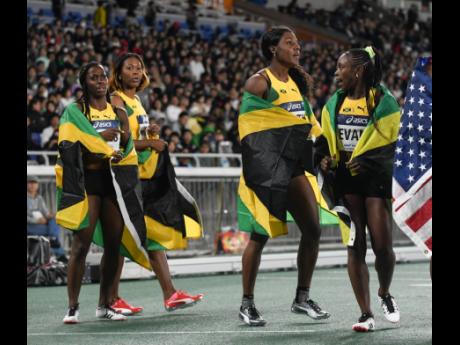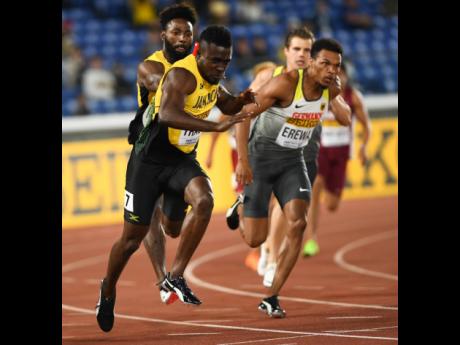Hubert Lawrence | Big three, small axe approach for 4x100m
The Jamaica Athletics Administrative Association (JAAA) gets a beating often these days. The Danielle Williams matter and the extra early date for this year’s National Championships, over three months away from the World Championships, have put the track and field federation in the firing line. However, it’s proactive treatment of another pressing issue deserves praise.
The news this week of preparatory 4x100+-metre races is a step in the direction of the podium in Doha, which will host the 17th World Championships starting on September 27. Our women have the burning speed of Shelly-Ann Fraser-Pryce and Elaine Thompson to anchor them, but they and the men’s 4x100m could both benefit from slick baton passing to maximise. These pre-World Championships races will help our coaches to weave those two 4x100m teams together.
Hopefully, in the days between the end of the Diamond League on September 6 and the 27th, more work can be done to secure the best results possible.
TRACK AND FIELD NEWS, the respected US publication, picked Jamaica for third place in the men’s sprint relay, but that prediction has been questioned in Jamaica. The scepticism ignores relay successes by teams bereft of individual sprint stars. Notably, Great Britain won the 2017 world title with a quartet that paled in a man-for-man comparison to the runner-up USA foursome.
As noted in this space last week, when Chijindu Ujah, Adam Gemili, Danny Talbot and Netheneel Mitchell-Blake edged the USA, their individual season’s best times were 9.97, 10.08, 10.37 and 9.99 seconds, respectively. Although those numbers amass to 40.41 seconds, the Britons won in 37.47 seconds.
The US came to the line with 100-metre gold and silver medallists Justin Gatlin and Christian Coleman and accumulated season’s bests totalling 39.74. By comparison, the 2019 Jamaican 4x100m will arrive in Doha with a combined time of 40.19, and if the 40.41 British team can run 37.47 seconds, so can we.
The British win was a victory for Bob Marley’s proverbial small axe. With only Yohan Blake remaining from the team that set the world record of 36.84 seconds at the 2012 Olympic Games, Jamaica could learn a lot from these World Champion Brits.
PRAISE THE JAAA
In this regard, the move by the JAAA is worthy of praise because it reflects an understanding that a different approach is required. From 2008 to 2016, Jamaica had the lion’s share of the world’s best male sprinters and all the relay team needed was adequate baton passing. Instead of crying over spilt milk, the federation has shown its readiness to help the sprinters we have now to go to Doha with real hope of a medal.
Still sceptical? Without no Jamaican surviving the 100m semis, legendary coach Herb McKenley composed a team that placed fourth in the 1964 Olympic 4x100m. Four years later with just one 100-metre finalist – runner-up Lennox Miller, Jamaica set a world record in the 1968 Olympics under Herb’s guidance. At the 1971 Pan-Am Games, with Miller and new star Don Quarrie at Herb’s disposal, Jamaica produced a rare defeat for the USA.
As quoted by Jimmy Carnegie and Errol Townsend in the classic HERB MCKENLEY: OLYMPIC STAR, Herb said, “cohesion and perfect understanding between the four members of a sprint relay team are very important”. To make things clear, ‘Mr Mac’ added, “all must have good speed, but more importantly they must be able to pass the baton with pinpoint accuracy 100 times out of 100. Even blindfolded.”
I rest my case.
Hubert Lawrence is a communications practitioner who has made notes at trackside since 1980.


